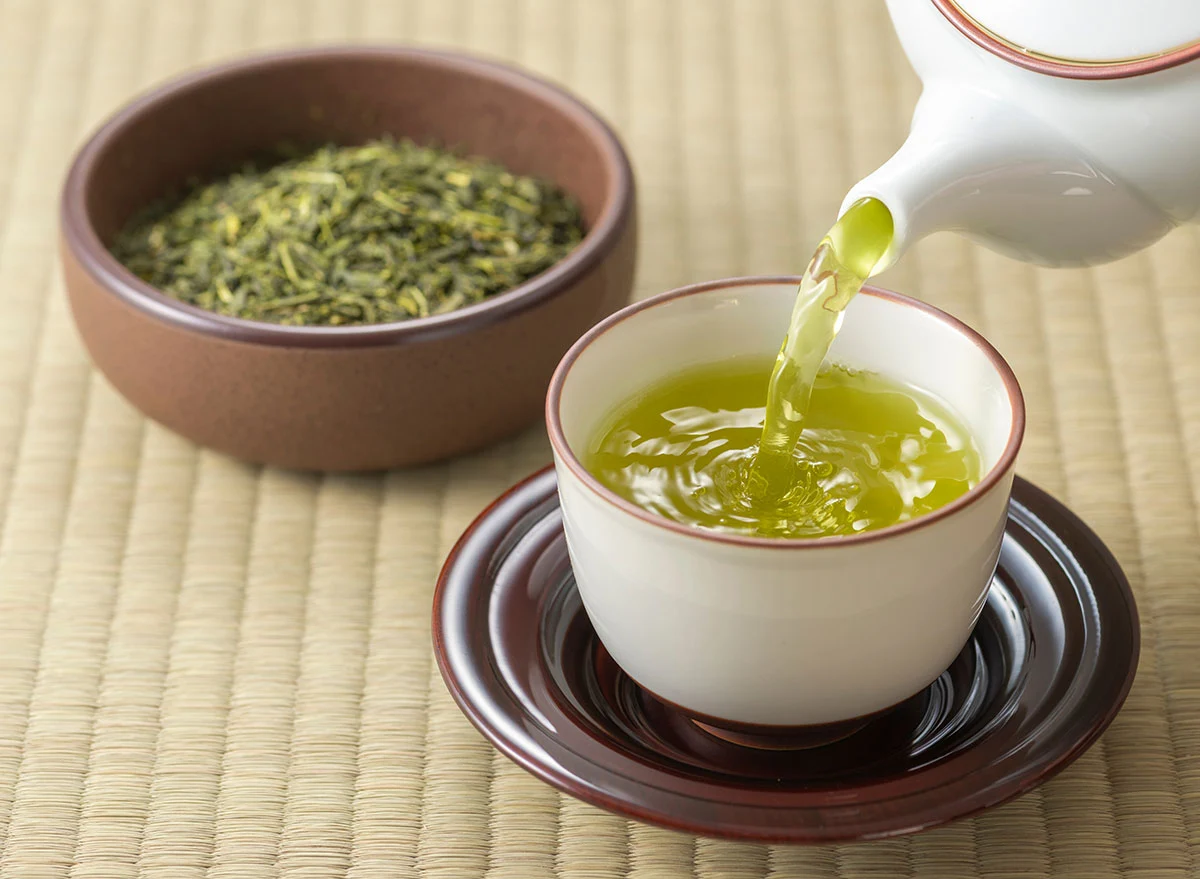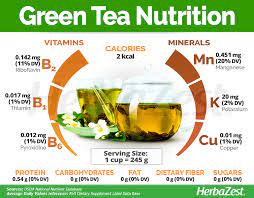Introduction:
According to research, tea is the world's second most consumed beverage after water. According to the USA tea association, more than 159 million people drink this brewed beverage every day, and it's easy to see why, tea can be enjoyed hot or cold, and there are different varieties for different tastes. Furthermore, the health benefits of tea, particularly green tea, have been extensively researched. This guide will go over all of the benefits of green tea, as well as how to drink more of it.
What is green tea?
Green, black, and oolong tea are all made from a single plant, Camellia sinensis, but the leaves are treated differently. Green tea's freshness, and almost grassy flavor results from not allowing the leaves to oxidize. Compared to other teas, green tea contains the most L-theanine (an amino acid). It contributes to strengthening brain waves, which brings about deeper relaxation and improves attention because green tea is a highly special plant.

Nutritional importance of green tea:
Although green tea still is the most frequently taken as a liquid today, it is increasingly making an appearance in supplements, personal care products, and other products.
Because boiled green tea is mostly water, it lacks the typical macronutrients in other foods. Unsweetened tea contains no calories and no fat, carbs, or protein. The catechins give it its good health reputation. A review found that these catechins had anti-inflammatory, antibacterial, and even anti-cancer properties.

According to a study, they are also thought to offer probiotic advantages. A cup of this green tea has about twenty-eight (28 mg) of caffeine, placing it significantly behind black tea's 47 mg. Based on how the teas were handled and brewed, there might be significant variations in the amount of caffeine present. The proportion of catechins in a cup might range from 25 mg to 750 mg, according to a systematic review.
A glance at the advantages of taking green tea:
Higher Level of Mental Consciousness: During lengthy, demanding mental tasks, a review indicated that caffeine, especially the quantity in matcha, increased alertness, arousal, and energy.
Avoidance of Heart Disease: Though there haven't been many long-term studies, those that have been done point to the possibility that green tea's antioxidant properties may help decrease blood pressure, maintain cholesterol under control, lowering the chance of heart disease. According to a Japanese study, those who drank five or more cups of tea daily had a 26 percent chance of dying from cardiovascular disease More recently, a study that examined the health records of 100,000 participants discovered that those who regularly drank tea had a 20% lower risk of developing heart disease or stroke, with green tea having the biggest influence.

Decreased Cholesterol: According to a comprehensive review and meta-analysis, drinking green tea reduces bad cholesterol levels in persons of all body weights.
To prevent cancer: Some scientists think catechins can inhibit the free radicals that cause cancer. However, the international Cancer Institute state that there isn't enough evidence to support the claim that drinking green tea can prevent cancer.
Lower Diabetes Risk: Daily green tea intake was linked to a reduced likelihood of type 2 diabetic complications and a reduced risk of all mortality causes in diabetes patients in a study including half a million Chinese individuals.

The connection between green tea and weight loss:
You've probably heard that drinking green tea would make your body burn fat. It is believed that the combination of the tea's catechins and caffeine speeds up metabolism, causing the body to burn more calories and lose weight.

It seems unreal, and it is. These statements are based on studies that claimed green tea as the key to weight loss, although the majority of them were small, short-lived, and frequently used green tea extracts as opposed to brewed tea. Unfortunately, it is foolish to expect that drinking green tea can significantly reduce your waistline. Clinical trials' conclusions regarding the relationship between green tea drinking and weight loss are conflicting. "Extracts high in ECGC might reduce hunger in animal studies and boost calorie and fat metabolism, possibly due to the catechins, caffeine, and theanine. With well-designed trials, the impact is still unknown.
A study was done on the extract from green tea to Acebo on obese women (with high levels of cholesterol). Participants' weight did not significantly alter after six weeks. In addition, a study of 15 clinical trials discovered that green tea only helped people lose weight when they also consumed 80 to 300 mg of caffeine each day.
Disadvantages of consuming excessive green tea:
Green tea has numerous benefits that have been established to be healthy and safe, but like with any food or beverage, there can be too much of a good thing. As green tea includes caffeine, therefore consuming too much of it can result in the typical side effects of caffeine overconsumption, like irritability and difficulty falling asleep. Consuming strong extracts of green tea can potentially hurt the liver. According to a study, women who consumed a high quantity of green tea extract daily—the equivalent of five cups of brewed tea—developed elevated levels of liver enzymes, which is the lesson here? The U.S. Food and Drug Administration does not regulate green tea extracts, so use caution (FDA). If you do decide to try them, however, it is advised to only take them with meals only and consult a doctor if you feel any symptoms of liver disease, such as particularly black urine or stomach ache.
Additionally, avoid green tea if you do have kidney failure, heart disease, or any other cardiovascular issues, and restrict your consumption to two cups per day if you're pregnant or nursing then go for specific advice, it's a good idea to speak with your healthcare professional. h may point to damaged liver cells.
Other uses of green tea:
A study discovered that green tea polyphenols' anti-inflammatory and antibacterial characteristics may help avoid solar damage. Catechins have been discovered to moisturize the face, which may help lessen the visibility of wrinkles, age spots, and fine lines. It's also a potent antibacterial element for acne treatment and unclogging pores," even though there have only been a few short, restricted studies on this subject and further study is required. Green tea is a great source of vitamin B2 and vitamin E, both of which are vital for healthy skin, according to her.
Conclusion:
Numerous studies support the health benefits of green tea, a plant-based drink that has been utilized medicinally for millennia. It is a popular beverage as well as a component to add to other cuisines and wellness products because of its high level of antioxidants and adaptability. However, because it includes caffeine, it's crucial to utilize supplements and extracts with caution and only in the approved dosages.



You must be logged in to post a comment.